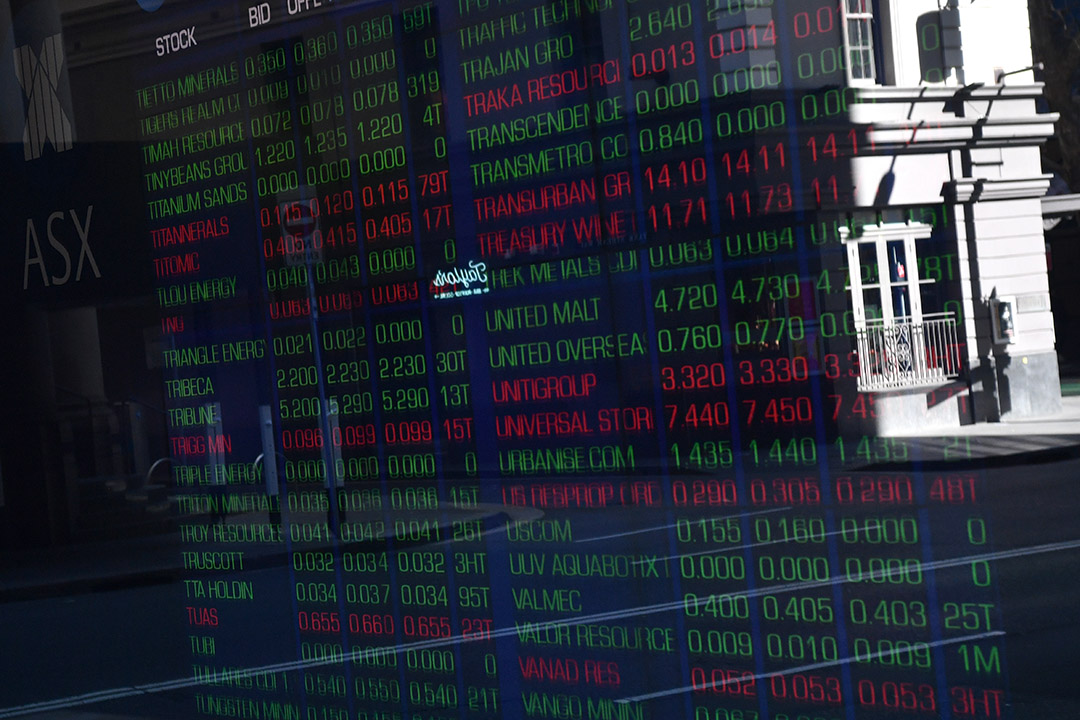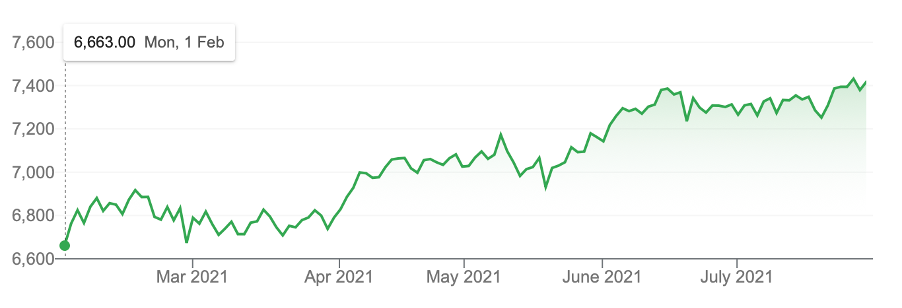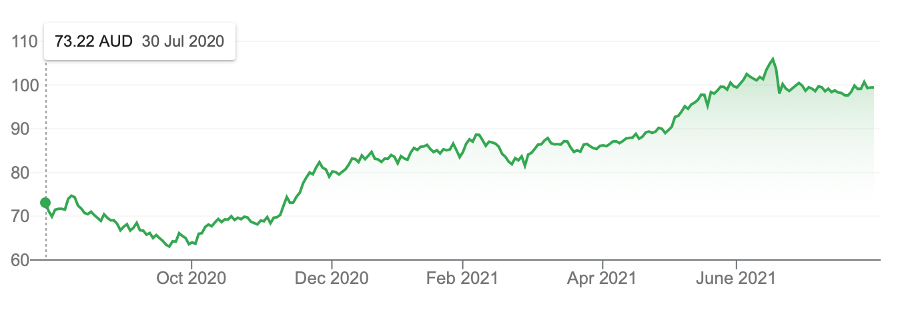

How come if our economy is being locked down, the stock market’s going up? That’s the question I’m getting all the time right now from normal people.
And maybe last night’s Switzer Investing TV programme (on our YouTube channel) explains why this apparent oddity of a rising share market with our two biggest states being in shutdown mode is happening.
Let’s look at this chart-wise.
S&P/ASX 200 six months

What this chart shows is that our stock market continued to rise, albeit at a slower pace from June, despite Melbourne and then Sydney going into lockdown. Furthermore, the market is in record high territory!
Sure, it has been helped by the irrepressible Yanks who are vaccinating like there’s no tomorrow, but they are ignoring the threat of the Delta strain of the Coronavirus. They’re not locking down in the old US of A!
They’re vaccinating! And those who don’t might find themselves without a job, with President Joe Biden playing hardball with anti-vaxers.
As the SMH says today: “Federal workers and on-site contractors will have to show proof of vaccination against COVID-19 or wear masks, practice social distancing and submit to regular testing under sweeping new guidelines the White House announced on Thursday”.
Add this to fantastic company reporting in the US, and our market has been helped by Wall Street. But clearly the key influencers of our stock market — big fund managers — are seeing something that normal people don’t quite get.
That’s why the stock market continues to rise.
So what is that they’re seeing?
In a nutshell, stock markets are often driven by what happens in six months’ time, and while lockdowns hurt the economy, businesses and consumers/workers now, when vaccination rates get much higher by Christmas rolling into 2022, companies will report higher sales, profits and a better outlook for their businesses.
February’s reporting season will focus on the outlook for companies rather than a lockdown affected September, and, maybe, December quarter.
So I asked the experts on my show to look at companies that might have depressed stock prices now, but in six or 12 months’ time we might kick ourselves for being wimps now!
I looked at Zip, Afterpay, Qantas, Woodside, Westpac and my experts added in Xero, Microsoft and Endeavour Group, the owner of Dan Murphy’s and a whole lot of pubs.
Qantas is a classic example. This a company that has to do better when vaccinations here and worldwide get us flying again. The short-term fund manager won’t buy now, but the long-term patient investor can wait, which, being the long-term patient types, is our competitive edge over the pros who have to show their customers that they’re making money all the time.
All the companies I’ve mentioned will benefit from a world getting back to normal. But both Zip and Afterpay have challenges from big players such as Apple, PayPal and even the CBA trying to eat their ‘lunch’.
So I asked Michael Gable of Fairmont Equities to look at the charts for these companies to see if they were a “buy” now or later.
And then I wrestled Zip’s CEO Larry Diamond out of his busy schedule to explain why he thinks the market has failed to see what he sees for his company. I’m a small investor in Zip but what he said has got me thinking I might add more to my exposure.
This is a speculative stock in my portfolio and is not a part of my safer core group of stocks, but I do like buying businesses of the future. It’s why Xero has gone from the speculative group to the more core group in my super fund. That said, I did buy when the market was negative on the company.
Mike Gable says he likes Xero going forward despite its elevated share price of $141.
I recommend you check out this important episode of Switzer Investing here if you think you can be an ‘invest now’ and ‘paid later’ kind of investor.
If you’re not a stock market tragic, who hasn’t got the time or the experience to play shares daily, it can be really smart to buy good companies out of favour now but should be better regarded in the future when conditions change.
I often point to CBA before October when we were all worried about the Coronavirus, lockdowns and what it might do to bank customers, its profit and dividends.
CBA one year

Once the news on the economy was better than expected, see how the share price rebounded.
I recommend you become a lover of long-term investing and this relationship will be rewarding. As Warren Buffett once said: “We believe that according the name ‘investors’ to institutions that trade actively is like calling someone who repeatedly engages in one-night stands a ‘romantic’.